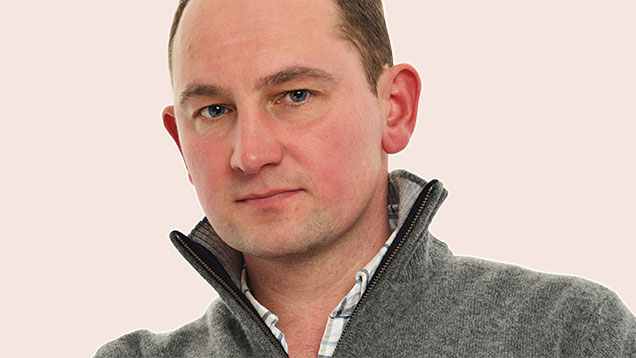Succession planning: Not easy, but essential

My father and I have finally tackled the thorny matter of succession. I can’t see why most farmers make such a fuss about it – it barely took us a decade to sort it out here.
We have both written new wills. I won’t tell you how much it has cost, but the professional fees have been only slightly less than I paid for my first house.
Planning the smooth transfer of a family business between generations is a tricky process for all parties involved. Have you ever been involved in discussions where the phrase “when you are dead” crops up a lot?
After five minutes everyone around the table has their arms folded and a face like Gordon Brown at a royal pageant.
Thankfully my father and I talk very openly; perhaps sometimes too openly. We had exhaustive conversations pondering increasingly improbable scenarios.
What if someone divorces? What if one of us is confined to a wheelchair? What if one of my nephews is lactose intolerant? What if I lose the plot and decide to marry a horse like Caligula?
Through this we identified that my death or ill health was as big a threat to my parent’s security as theirs would be to mine, a thought I hadn’t considered.
Like many farmers, our challenge is that our wealth is shared and is largely suppositional. Our money is tied up in working capital, bespoke buildings, renewable energy and farmland rather than cash. These are assets which you might call “unenjoyable affluence”. We depend on hard work to extract any value from them.
We have a business plan to expand further and to reinvest future profits. With any luck this will be fine; we are both healthy and quivering like greyhounds on the starting line.
Nonetheless it has been necessary to ensure that, in the unexpected event of a death or our inability to work, we can make good provision for ourselves and other family members without dismantling the business. This is where the complexity arises.
Our solution has been to split the assets of our business into two separate companies, a holding company and a farming company.
The holding company will purchase the property from my father and me, and will retain that cash as directors’ loans. Should my father or I die, our shares in that company will be held in trust to benefit other family members.
The subsidiary farming company will rent the assets from the holding company and it will be responsible for growing and marketing our crops. Chris, our farm manager, will become a director of the farming company.
Essentially we are trying to create a commercial relationship between the two companies where each generates a return on its invested capital. When I see the structure on paper, it looks unnecessarily elaborate. We have gone from a very simple, but highly-taxed business partnership to what looks like an evil flower empire.
Having gone through this process, I now have sympathy for other farmers faced with their own choices. It is rather grim to have to consider your own mortality or to make decisions which favour or disadvantage individual family members.
My advice to the next generation is to try to understand these difficulties, as this will help you to arrive at a solution. I can tell you from our own experience that it is liberating to put these matters to bed and to focus on developing the business and making some money instead.
Matthew Naylor
Matthew Naylor farms 162ha of Lincolnshire silt in partnership with his father, Nev. Cropping includes potatoes, vegetables, cut flowers and flowering bulbs. Matthew is a Nuffield scholar.

